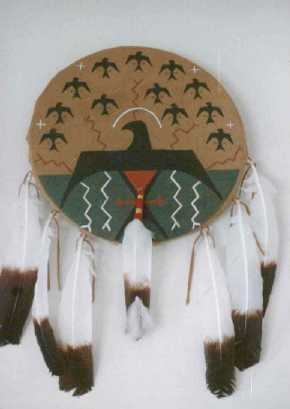The ego
Extract from Gnosis
Our form is the ego: it is this mysterious incapacity to be other than oneself, and at the same time the incapacity to be entirely oneself and not ‘other-than-Self’. But our Reality does not leave us the choice and obliges us to ‘become what we are’, or to remain what we are not.
The ego is, empirically, a dream in which we ourselves dream ourselves; the contents of this dream, drawn from our surroundings, are at bottom only pretexts, for the ego desires only its own life: whatever we may dream, our dream is always only a symbol for the ego which wishes to affirm itself, a mirror that we hold before the ‘I’ and which reverberates its life in multiple fashions.
This dream has become our second nature; it is woven of images and of tendencies, static and dynamic elements in innumerable combinations: the images come from outside and are integrated into our substance; the tendencies are our responses to the world around us; as we exteriorise ourselves, we create a world in the image of our dream, and the dream thus objectivised flows back upon us, and so on and on, until we are enclosed in a tissue, sometimes inextricable, of dreams exteriorised or materialised and of materialisations interiorised.
The ego is like a watermill whose wheel, under the drive of a current — the world and life — turns and repeats itself untiringly, in a series of images always different and always similar. The world: it is as if the ‘conscious Substance’ which is the Self had fallen into a state which would split it up in many different ways and would inflict on it endless accidents and infirmities; and in fact, the ego is ignorance floundering in objective modes of ignorance, such as time and space.
What is time, if not ignorance of what will be ‘after’, and what is space, if not ignorance of what escapes our sense? If we were ‘pure consciousness’ like the Self, we would be ‘always’ and ‘everywhere’; that is to say we would not be ‘I’, for that, in its empirical actuality, is entirely a creation of space and time. The ego is ignorance of what is ‘the other’; our whole existence is woven of ignorances; we are like the Self frozen, then hurled to earth and split into a thousand fragments; we observe the limits which surround us, and we conclude that we are fragments of consciousness and of being.
Matter grips us like a kind of paralysis, it imposes on us the heaviness of a mineral, and exposes us to the miseries of impurity and of mortality; form shapes us according to such and such a model, it imposes on us such and such a mask and cuts us off from a whole to which we are none the less tied, though at death it lets us fall as a tree lets fall its fruit; finally, number is what repeats us — inside ourselves as also around us — and what, in repeating us, diversifies us, for two things can never be absolutely identical; number repeats form as if by magic, and form diversifies number and must thus create itself ever anew, because the All-Possibility is infinite and must manifest its infinitude.
But the ego is not only multiple externally, in the diversity of souls, it is also divided within itself, in the diversity of tendencies and of thoughts, which is not the least of our miseries; for ‘strait is the gate’ and ‘a rich man shall hardly enter into the kingdom of heaven’. And since we are ‘not other’ than the Self, we are condemned to eternity.
Eternity lies in wait for us, and that is why we must find again the Centre, that place where eternity is bliss. Hell is the reply to the periphery which makes itself the Centre, or to the multitude that usurps the glory of Unity; it is the reply of Reality to the ego wanting to be absolute, and condemned to be so without being able to be so... The Centre is the Self ‘freed’, or rather that which has never ceased to be free—eternally free.
